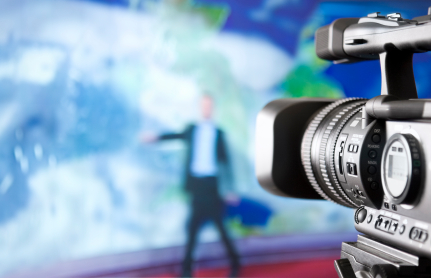How To Survive An Ambush Interview (Part Two)
In part one of “How to Survive an Ambush Interview,” I discussed how to react to an ambush when a reporter shows up without warning.
Today’s post will look at a different type of ambush: What should you do if you’re being interviewed and the reporter blindsides you with a completely unexpected topic?
These types of ambushes are tricky. If you refuse to answer, you look guilty. If you answer badly, the results could be even worse. You have two choices:
- Answer The Question: Doing so usually plays better to the audience, and good media training should prepare you in advance to anticipate the “unexpected” questions.
- Deflect: Tell the reporter that this interview was supposed to be about a specific topic, but that you’d be happy to schedule a future interview to discuss other issues. This might be your best approach if the question is about a topic the audience wouldn’t expect you to know. But be careful – your refusal to answer may come across as a defensive dodge.
One of my favorite examples of an anchor blindsiding his guest comes from the BBC. In early 2010, host Andrew Neil interviewed John Hirst, the head of the U.K. Met Office (The U.K.’s National Weather Service).
Let’s just say the interview started on the wrong foot – and only got worse as it went along.
I’m fond of quoting an expression by ABC News correspondent Sam Donaldson, who advised that, “The questions don’t do the damage. Only the answers do.” But there’s an exception to every rule, and Mr. Neil’s first question inflicted severe damage:
Host Andrew Neil: “You predicted a barbeque summer for 2009, we don’t remember that, and a mild winter for this winter, which hasn’t happened. Why did you receive a massive performance-related bonus?”
At first, Mr. Hirst deflected the salary question by saying, “Let’s put my bonus to one side for the moment.” I like that approach, since it allowed him to focus on the question of meteorological accuracy first. By saying, “for the moment,” he indicated a willingness to discuss his bonus, but as a separate issue unrelated to the accuracy of his office’s forecasts.
But Mr. Neil didn’t relent. He continued to undermine Mr. Hirst’s claims for the next five minutes by citing one inaccurate forecast after another.

Mr. Hirst made some good points during this interview, but they were buried in a lack of passion and lack of control. I would have liked for him to have “zoomed out” by pre-empting any further questions about blown forecasts from the start by saying something such as:
“The question isn’t whether our forecasts are perfect, but whether they are among the most sophisticated and accurate in the world. They are. For every example you can cite of an incorrect forecast, I could cite many more that we got right. My bonus isn’t tied to any specific forecast, but rather our overall accuracy. You don’t have to take my word for it – virtually every international meteorological group cites our office as among the best in the world.”
Using that preemptive approach, Mr. Hirst could have responded to any additional questions about blown forecasts by saying:
“Again, Mr. Neil, you can keep citing examples of imperfect forecasts, but for every one you cite, I can cite many more that we got right. Taxpayers should be very proud that our weather office is widely regarded as one of the best in the world. And although we’re proud of that, our professional meteorologists are working hard to continue improving our accuracy – we feel we owe that to the taxpayers.”
One final note: Mr. Neil’s body language was dreadful. Instead of leaning forward and projecting his energy toward the camera (and thus the viewers), he sat with one armed draped over the couch and projected almost no energy whatsoever. In an ambush, visuals matter more than usual – so he should have been more careful not to convey a hint of defensiveness.
Click here is you missed part one of this series
Have the best of the blog delivered to your inbox twice per month! Enter your name in the box below to join our mailing list.



Here is an example of an ambush that toppled the frontrunner of the Irish Presidential election last year
http://www.youtube.com/watch?v=uUhFdi7iRL0
Explanation: http://www.independent.co.uk/news/world/europe/storm-envelops-favourite-in-irish-presidential-race-2376411.html
Sean Gallagher had been ahead by 15% in polls prior to this debate 3 days before the election. He subsequently lost by 10% to another candidate (not shown in this clip) (Full details of election: http://en.wikipedia.org/wiki/Irish_presidential_election,_2011)
It later transpired that the tweet the moderator read out was from a fake twitter account and this is currently the subject of an investigation by Ireland’s broadcasting authority. Gallagher later denied that he collected any envelope/cheque and said he had been flustered by the “fake tweet” which caused him to give his disastrous answer.
I guess the lesson from a communications perspective would be “if unsure, deny”.
Mark –
That’s a terrific clip, and an incident I missed. Thank you for sharing that moment from the Irish elections, and please feel free to leave any future clips that you think might be relevant on the blog!
Thanks again for reading and writing,
Brad